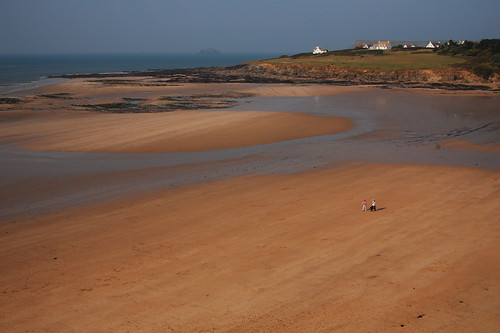Back in the good old days of July, when the sun was strong and optimism suffused the land, I called The Famous 3 Kings my headquarters for World Cup watching. Nearly every night I strolled up North End Road to the pub that enjoys quite a renown for what it does, thanks to enormous projection screens, a generous TV subscription and proprietors that support fair-play and sportsmanship as much as they support their team.
The success of the pub right next to West Kensington tube station as a sports pub is quite surprising: Two decades earlier it was a wild punk music venue where, legend has it, a Sex Pistols concert inspired Joe Strummer to form his own band, and thus The Clash were born. The only thing connecting these two eras is the beer, which has never stopped flowing.
In pubs in London, most beer is interchangeable. Dutch, American, German, Czech, Italian and Spanish labels grace the taps, but the suds are brewed by the same international conglomerates, in industrial-size vats, on greenfields in Sussex and Wales. I stay away from that stuff. Instead, I'm tasting myself through ales, tepid but flavorful concoctions that have been making a national resurgence lately. They are crafted by smaller, sometimes independent brewers, and pumped with the force of a hand (as opposed to carbon dioxide).
Most ales have a wet-earth taste that always recalls in me that first encounter, in Utah in 1998, with Uinta Cutthroat Pale Ale. The assault of freshly harvested carrots and the soil that clings to them was something my taste buds weren't prepared for, and I struggled throughout my stay there with the local brews. Now I dig them – or rather their equivalent. Doom Bar, from a small brewery in Cornwall, has become a particular favorite of mine.
Last weekend, I went to Cornwall, though there was no connection to the beer, not even tenuously in some remote twist of my brain. I just wanted to see the rugged western tip of England that's so beloved by holidaymakers that it's nearly impossible to enjoy in summer when its population temporarily swells from one to five million. Last weekend, everywhere we went was peaceful and calm.
We stayed in a bed and breakfast overlooking Perran Bay, one of many surfers' favorites on the north coast. The view from the breakfast room made up for the meal itself: Bacon, beans in tomato sauce from a tin, a scary little sausage, a frail egg, and a hash brown from the freezer. I have no idea how my dad managed to survive this for ten days when he toured southern England earlier this summer.
Saturday was grey as cold steel, and nearly as featureless. The grey sky and the equally grey sea were separated by a fuzzy band of ill-defined horizon. The sand on the beaches, still wet from the receding tide, was the heavy grey of industrial mud. On the positive side, it wasn't all too cold, it didn't rain, and what little color there was stood out like neon green. We went to St. Ives, a cute little town that has played a disproportional role in the fine arts. They've even got a dependency of the Tate.
It was a memorable walk. The sun, the balmy air, the vastness of the beach, the clear and refreshing air, the softness of the sand, and the sound of lapping waves combined to create a sensation of magic and uniqueness. There was a sense of tranquility that was unperturbed by people walking their dogs, and a sense of infinity. All boundaries were blurred by a distinct haziness that magnified the apparent size of the place.
We ambled for hours but didn't get very far. There was no need and no point. It was all beautiful. That's why I missed an aspect of the estuary that I now wish I had seen: Its mouth is blocked at low tide by a crescent sand bank that has over the centuries spelled disaster and death to hundreds of ships and sailors, earning it the sobriquet Doom Bar. These days, it spells success to Sharp's Brewery and their fine ale, an altogether more becoming association.


1 comment:
ale! mmm tasty!
Post a Comment